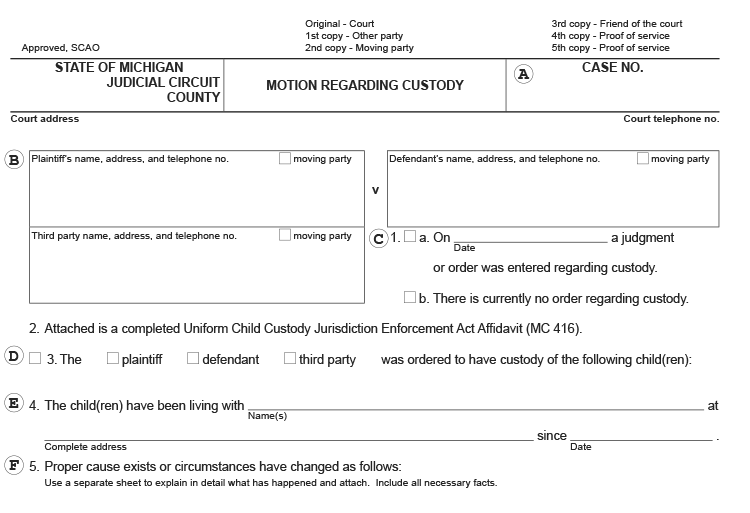Child custody refers to how Michigan Courts determine who cares for a child when parents split after a divorce; or, when unmarried couples do not share the same residence. Michigan Law prefers the child sees both parents as this is usually in the best interest of the developing person.
Custody agreements determine where a child lives and who has the legal authority to make decisions for the youngster. Many factors are considered before finalizing the custody order. Of course, the process runs more smoothly when parents work together.
Sadly, this doesn’t always happen. Consequently, it remains extremely important to retain an experienced family law attorney that specializes in child custody in Michigan.
Types of Child Custody in Michigan
The two main types of child custody are: physical and legal.
- Physical custody refers to where a child lives. In other words, which parent does the child live with and for what percentage of time does the youngster stay with that parent. Mom and Dad may share physical custody; 50/50, 70/30, or 80/20. The 80/20 schedule is usually a sole physical custody arrangement where the child lives with one parent and visits the other one.
- Legal custody determines who makes various decisions in the child’s life. The decisions may include health care, education, religion, and others. Usually, there is a joint legal custody agreement in place. In a joint arrangement both parents are involved in determining what’s best for the young person. However, if one person has sole legal custody, that person makes all legal decisions for the child. This may happen if one or both parents are unable to raise a child for any reason.
The Child Custody Act of 1970
The Child Custody Act of 1970 (Act 91 of 1970) Sections 722.21-722.31 explains and provides for the rights of parents and children. The Act covers custody issues, parenting time, grand parenting time, guardianship custodial information and much more. Additionally, very serious child abuse laws are presented in the Child Custody Act. Of course, a child custody attorney understands the complexity of the statutes that govern custody rules. So, if you have concerns about custody laws, discuss them with your attorney.
Child Custody Disputes
Divorce cases involving children may get messy. Often parents disagree regarding custody issues. Sometimes one partner may be angry with another and use the child to “get back” at the one that hurt them. Other times, a parent may be genuinely concerned for a child’s safety with the other parent. This happens when there’s a history of violence, mental illness, drug/alcohol addiction, or mentally abusive behavior. In these cases, the Courts must look at numerous factors before determining custody arrangements. Basically, the child’s best interests are paramount. So, the Court determines where and how the child will be safe and secure.
Custody Evaluation Factors
The Court assigns an Evaluator when there is a custody dispute. The Evaluator observes the parent/child interactions, looks at health records, talks to teachers, and may do psychological testing of parents. Some factors the Court Evaluator considers include:
- History of involvement with child- Do both parents spend time with their child?
- Child Abuse- Is there any record of child abuse with ANY child by either parent?
- Drug/Alcohol addiction- Has either parent been arrested or received treatment for drug or alcohol related offenses?
- Domestic Violence- Has one or both parents been physically or emotionally abusive to one another or to the children?
- Child Preference- Who does the child want to live with? Of course, this only applies to an older child.
- Mental and Physical Health of Parent- Is each parent physically and mentally healthy?
- Home Environment- Which parent has a safe home?
- Current Home- Where does the child live now?
- Setting age appropriate limits- Do the parents set reasonable limits for the child? For example, bringing a seven year old to a bar at midnight would be inappropriate.
Michigan Child Custody Forms

Parenting Schedules
A Parenting Schedule should revolve around the best interests of the child. Once the time frame is set by the Court all involved parties should work together. Parents should keep one another informed of a child’s school progress, sporting events’ schedules, plays, concerts, parent/teacher conferences, and any other significant events. Also, each parent must be flexible.
Children get sick, important events pop up, and other instances may affect a “schedule.” Naturally, if one parent is never following the schedule and preventing the other parent from seeing their child, contact your attorney.
Once again, the most important thing is the emotional and physical health of your child. So, remember, your child will always remember that “you were there” for them…even if your marriage fell apart.




